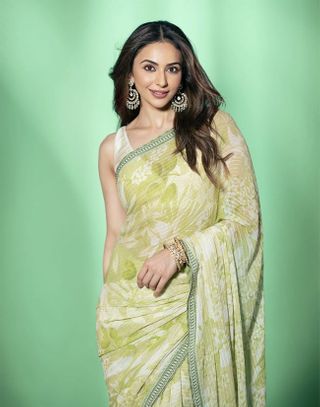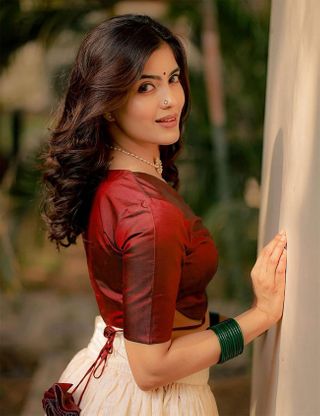Silsiilay Movie Review
It would be the easiest thing to dismiss this enrapturing ensemble-piece as just one more attempt by a film critic to crossover to the other side.
It would also be the most unjust and creatively destructive thing to be dismissive of Khalid Mohamed's third feature film.
With 'Silsilay', Khalid has truly blossomed as a raconteur of ravishing devices. 'Silsilay' is an ambrosial outing into the hearts of several extremely mercurial and beautiful women, all trying to come to terms with the eccentric metabolic activities of the body that we often describe as love.
An episodic excursion into the heartland of human relationships, 'Silsilay' is an expertly assembled collage of contemporary and tradition values all cemented by cinematic conventions such as songs and some sweaty sweltering dances too.
But do not undermine the director's strengths as a storyteller. The satirical filming of the typical love duet between Rahul Bose and Bhumika Chawla, or the way he shows the fan-star relationship displays the director's keen eye for humorous details of day-to-day life.
In his earlier "Fiza" and "Tehzeeb", Khalid erred in bringing his complex women-centric films to a comfortable culmination. In "Silsilay", he goes all the way to the finale with a flourish and finesse that makes him one of the more interesting moviemakers of modern Hindi cinema.
More urbane than opaque, more metro-centric than massy, "Silsilay" is that above-ordinary experience which gives us characters who are real and yet cinematic. The gallery of woman are, as usual, peculiar to Khalid's sense of aesthetics. Every woman in "Silsilay", from Tabu to Divya Dutta, is a fey and fabulous creation, more remarkable for what they don't say rather than say.
The dialogues (Khalid Mohamed) are exceptionally expressive. When Neel (Rahul Bose) meets actress Zia (Bhumika Chawla) for the last time, she comments on how her dog still seems to love him.
"Thank you for one peg of whisky and two pegs of sarcasm," Bose retorts.
Sarcasm is just one of the moods the narrative embraces with intimate impunity. Moving through its triple-tiered cake about the ache of human relationships, "Silsilay" journeys with bridled ecstasy into the land of the lusciously lovelorn.
Story No 1 has Bhoomika Chawla (totally transformed from dull to dynamic) as an actress on the brink of a break up. At the end, when she fakes a suicide, her sister Divya Dutta says: "I'm crying because you are not."
Desensitized femininity is a theme that runs through the film. "How long will you take this behaviour?" Tabu's stepson (newcomer Karan) goads her in the film's final and by far the best story. Tabu, as the desolate Muslim wife Rehana trying hard to overlook her husband K.K. Menon's philandering ways, brings an extraordinary quality to the proceedings. In her characterization and performance, not to mention the extraordinary cinematography, this episode echoes Guru Dutt's "Sahib Biwi Aur Ghulam" and Satyajit Ray's "Charulata".
It's easy to miss Khalid's sensuous allusions (for example Nargis in "Mother India" on the TV as Tabu sits forlorn waiting for her husband) and look at the film's self-consciously avant-garde format as an affectation.
However, the three women, and even peripheral characters such as Natashha as Riya's Sen's promiscuous roommate in the second episode, all add up to a microcosmic magnificence, exuding strength and frailty in palatable serio-tragic measures.
The middle story, where the small-town girl Riya Sen must choose between her dangerously undependable lover (Ashmit Patel) and her quietly loving and compassionate boss (Jimmy Shergil), is weak in comparison with the other two stories, mainly because Riya Sen is miscast as the wide-eyed innocent (a la Konkona Sen in "Page 3"). The character called for Raima not Riya Sen.
Also, the unnecessary necking, petting and smooching in the middle story jars in a film that's high on aesthetics. Why go for the obvious<



















